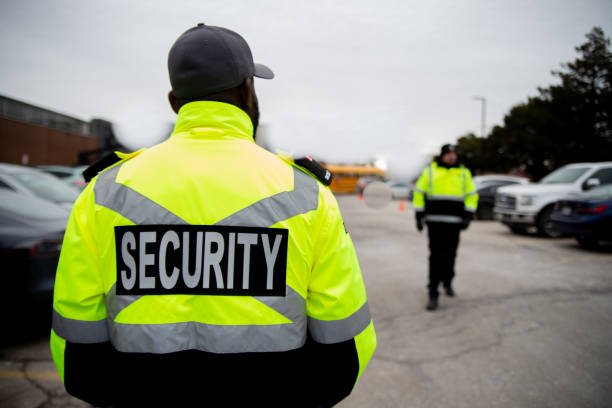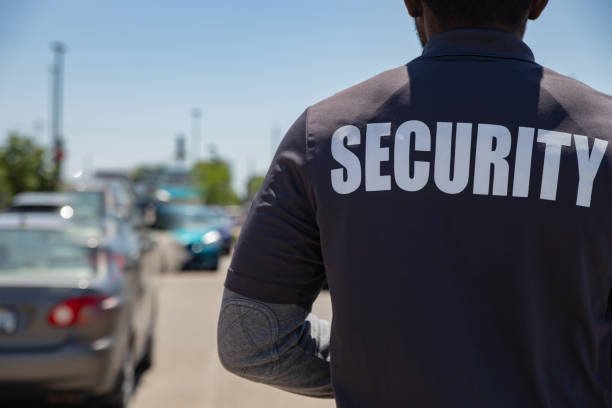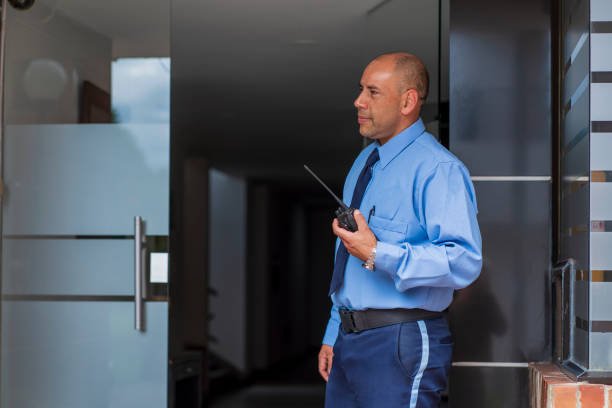
Understanding PSIRA Registration Requirements for Individuals
Understanding PSIRA Registration Requirements for Individuals
Understanding PSIRA Registration Requirements for Individuals: If you’re planning to work in the private security industry in South Africa, it is crucial to comply with the regulations set by the Private Security Industry Regulatory Authority (PSIRA). PSIRA is responsible for the regulation of the private security industry and ensures that individuals and security service providers comply with the necessary requirements.
--- Advert ---
PSIRA Registration Requirements for Individuals
The PSIRA registration process for individuals is a critical step for anyone aiming to work within South Africa’s private security industry. To ensure compliance and legality in your operations, meeting the PSIRA registration requirements for individuals is essential. Let’s dive deeper into these requirements:
- Training: Central to the PSIRA registration requirements for individuals is the completion of a PSIRA-accredited training program. This certification is your ticket to proving your competence in the specific category of security service you wish to offer. The training equips you with the necessary skills and knowledge to perform effectively in your role, making it a foundational element of the PSIRA registration process for individuals.
- Criminal Record: Adherence to legal standards is non-negotiable in the security industry. As part of the PSIRA registration requirements for individuals, you must demonstrate a clean legal background. Obtaining a police clearance certificate is mandatory, underscoring your eligibility by confirming the absence of any criminal convictions. This criterion safeguards the industry’s integrity, ensuring only trustworthy individuals are granted registration.
- Identity Documents: The PSIRA registration requirements for individuals stipulate that applicants must be either South African citizens or permanent residents, armed with a valid South African identity document. This requirement ensures that all registered security personnel are legally recognized residents, further legitimizing the workforce within the private security sector.
- Age: Age plays a crucial role in the PSIRA registration requirements for individuals, with a minimum age limit set at 18 years. This ensures that all applicants possess the maturity and responsibility necessary for the significant duties that come with working in security.
- Health: Your physical and mental well-being is pivotal. The PSIRA registration requirements for individuals include a health assessment to confirm you’re free from any conditions that could impede your ability to fulfill your responsibilities. Ensuring that security personnel are in good health is vital for the demanding nature of security work.
- Fingerprints: A unique aspect of the PSIRA registration requirements for individuals is the fingerprinting process. Your fingerprints must be taken by the South African Police Service or an accredited service provider, a step that aids in the comprehensive background check, reinforcing the security industry’s commitment to safety and reliability.
- Registration Fee: Lastly, the PSIRA registration requirements for individuals include the payment of a non-refundable registration fee. This fee varies depending on the category of security service you intend to provide, and it’s a necessary step to finalize your registration, enabling you to legally operate within the private security sector.
Meeting these PSIRA registration requirements for individuals is not just about fulfilling legal obligations; it’s about ensuring that the security services sector remains a reputable, trustworthy, and integral part of South Africa’s safety and security framework. Whether you’re a budding security professional or looking to elevate your career in the industry, understanding and complying with these requirements is your first step towards a successful and compliant career in private security.
Training Requirements for PSIRA
To secure your registration with the Private Security Industry Regulatory Authority (PSIRA), the first requirement is completing a training program that is accredited by the organisation. The training sets the groundwork for professional conduct and equips you with essential skills and knowledge specific to your chosen sector within the security industry. The category of security service you aim to offer—whether it’s event security, body guarding, or asset protection—dictates the type of training you’ll need. Upon successful completion, you will receive a certificate of competence, which is mandatory for the registration process.
- Basic Security Officer Training: This is an entry-level course for those aspiring to become security guards.
- Event Security Training: Specialized training for those who intend to work at concerts, sports events, and public gatherings.
- Asset Protection Training: Focuses on safeguarding physical assets like buildings, products, or valuable information.
- VIP Protection Training: Specific training for those who plan to offer personal security services.
- CCTV Operator Training: A course that equips individuals to professionally manage closed-circuit television systems.





Criminal Record Checks
One of the most stringent conditions for entering the private security industry is a clean criminal record. As a prospective applicant, you’ll need to obtain a police clearance certificate. This certificate serves as proof of your legal standing and indicates that you have not been convicted of any crimes. It is crucial as security personnel often find themselves in positions of trust, making a clean record a non-negotiable requirement.
- Petty Theft Conviction: Will disqualify you from PSIRA registration.
- Traffic Violation: Generally doesn’t impact your criminal record for PSIRA purposes.
- Assault Conviction: Another disqualifying factor.
- White-Collar Crimes: Convictions like fraud would also result in disqualification.
- Juvenile Records: May or may not be considered, depending on when they were expunged and the nature of the crimes.
Identity Verification
Valid identity documentation is crucial when registering with PSIRA. You must either be a South African citizen or a permanent resident holding a valid South African identity document. This is required to verify your eligibility for employment within the country, as well as to conduct the necessary background checks.
- South African National ID Card: Most commonly used ID document.
- Passport for Permanent Residents: Also accepted.
- Driver’s License: Generally not accepted as a standalone identification document.
- Birth Certificate: May be used in conjunction with other forms of identification.
- Asylum Seeker’s Permit: May or may not be accepted depending on PSIRA’s current regulations.
Age Requirements
To be eligible for PSIRA registration, you must be at least 18 years old. This age requirement ensures that applicants possess a level of maturity and responsibility needed for roles in the private security sector. Given the nature of the work and the level of responsibility involved, it’s considered inappropriate for minors to undertake such roles.
- Fresh High School Graduates: Typically 18 or older, generally meet the age requirement.
- Gap Year Students: Also likely to meet the age requirements.
- Career Changers: Usually well above the minimum age requirement.
- Retirees: Age is generally not a restricting factor as long as other requirements are met.
- Underage Applicants: Absolutely not permitted.
Health Conditions
Your physical and mental well-being are also significant factors for consideration. Applicants should not have any medical conditions that might compromise their ability to perform their duties effectively. This can range from chronic illnesses to physical disabilities that could hinder performance in a security role.
- Physical Fitness Test: Often required to demonstrate good health.
- Hearing and Vision Tests: Specific tests may be needed for certain roles.
- Chronic Illnesses: Conditions like diabetes may require additional medical evaluation.
- Mental Health Assessment: Could be required for high-stress security roles.
- Drug Testing: Many firms will require passing a drug test as proof of good health.
Fingerprinting
As part of the application process, you will also need to have your fingerprints taken. This can be done through the South African Police Service or another accredited service provider. Fingerprints are another layer of background verification, ensuring the integrity and legality of your application.
- Police Stations: Most direct and conventional way to get fingerprinted.
- Accredited Private Agencies: Alternative to police stations.
- Online Services: Some digital fingerprinting services are also PSIRA accredited.
- Employer Services: Some large security firms have the ability to take fingerprints during the application process.
- Mobile Fingerprinting Services: For those unable to travel, though less commonly used.
Registration Fees
Lastly, a non-refundable registration fee is required to complete the application process with PSIRA. This fee can vary depending on the type of security service you intend to provide. Ensure you check the most current fee structure from PSIRA’s official resources or contact them directly for the most accurate information.
- Basic Security Officer: Lower fee for entry-level positions.
- Event Security Personnel: Mid-range fee based on specialization.
- VIP Protection Services: Higher fee due to the sensitive nature of the work.
- CCTV Operators: Another specialized field with its specific fee.
- Multiple Specializations: In some cases, an individual might require registration in multiple categories, thereby increasing the total fees.
Once you have met these requirements, you can proceed with the registration process by completing the PSIRA registration application form. You will also need to submit the necessary supporting documents, such as your training certificate, police clearance certificate, and identity documents.
After submitting your application, PSIRA will conduct an assessment of your application to ensure that you meet all the necessary requirements. If your application is successful, you will receive a PSIRA registration certificate, which is valid for three years.
Compliance with the PSIRA registration requirements is essential for anyone looking to work in the private security industry in South Africa. By meeting these requirements, you demonstrate your commitment to professionalism, ethical conduct, and compliance with the regulations governing the private security industry. If you are unsure about any of the requirements, you should seek advice from a PSIRA-accredited service provider or consult the PSIRA website for more information.
